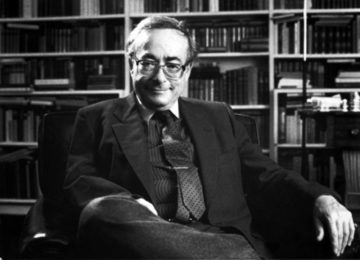Richard Hughes Gibson at The Hedgehog Review:
 George Steiner was called many things across his lengthy writing career—sage, pedant, philosopher, snob, the last great European intellectual, a “mimic” staging a decades-long “impression of the world’s most learned man”—but the title he always claimed for himself was simply critic. As we reflect on the meaning of Steiner’s work in the wake of his death in February 2020, that self-characterization cannot be forgotten. Steiner was in many ways a formidable scholar, and his commentaries on core texts (Antigone, The Brothers Karamazov, the poetry of Paul Celan) and enduring themes (tragedy, translation, the inhuman) will surely be cited for many years to come. Yet from the beginning of his career in the late fifties to his last notable works at the turn of the century, he was explicitly engaged in the practice of criticism—the goal of which was to reach the wider republic of readers (not just academicians) with his urgent dispatches on the state of the arts and culture. It was as a critic that he asked to be judged.
George Steiner was called many things across his lengthy writing career—sage, pedant, philosopher, snob, the last great European intellectual, a “mimic” staging a decades-long “impression of the world’s most learned man”—but the title he always claimed for himself was simply critic. As we reflect on the meaning of Steiner’s work in the wake of his death in February 2020, that self-characterization cannot be forgotten. Steiner was in many ways a formidable scholar, and his commentaries on core texts (Antigone, The Brothers Karamazov, the poetry of Paul Celan) and enduring themes (tragedy, translation, the inhuman) will surely be cited for many years to come. Yet from the beginning of his career in the late fifties to his last notable works at the turn of the century, he was explicitly engaged in the practice of criticism—the goal of which was to reach the wider republic of readers (not just academicians) with his urgent dispatches on the state of the arts and culture. It was as a critic that he asked to be judged.
more here.
